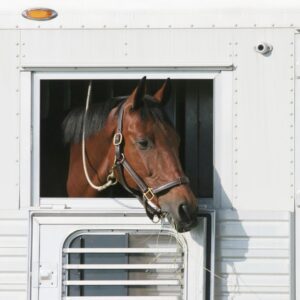 Considerations When Moving Horses to a Different Climate: Do you travel a lot? Then you know that you need to pack shorts for a Florida vacation. Mayne throw in an extra jacket for a winter visit to those New England cousins? Of course, stock up on antacid before you spend a few weeks with your great-aunt, an enthusiastic chef in Europe. In today’s equestrian world horses routinely move south for the winter training months. They fly to Germany for a dressage lesson. O Or possible, shuttle to the opposite hemisphere for a second breeding season. Therefore, owners need to think about ways to minimize stress. Here are tips to help equines make a smooth transition to another climate, a modified diet, and a different exercise routine.
Considerations When Moving Horses to a Different Climate: Do you travel a lot? Then you know that you need to pack shorts for a Florida vacation. Mayne throw in an extra jacket for a winter visit to those New England cousins? Of course, stock up on antacid before you spend a few weeks with your great-aunt, an enthusiastic chef in Europe. In today’s equestrian world horses routinely move south for the winter training months. They fly to Germany for a dressage lesson. O Or possible, shuttle to the opposite hemisphere for a second breeding season. Therefore, owners need to think about ways to minimize stress. Here are tips to help equines make a smooth transition to another climate, a modified diet, and a different exercise routine.
Managing Stress:
Any change is likely to produce a bit of stress in horses, though older and more experienced horses react to changes more calmly than young, green equines. For any horses, however, owners should try to keep to familiar routines as much as possible during travel. This is especially true in regard to feed management.
Hay and Nutrients:
Take the horse’s regular hay along for the ride in the trailer or plane, plus enough hay and grain to last during a stay of a few days. For longer relocations, take along enough to mix with local supplies, adding a bit of the new feed and hay into the horse’s familiar ration the first day and gradually increasing the amount until the old material has been replaced by what the horse will eat at the new facility.
If the horse is being moved a considerable distance, check to see if hay and pasture in the new location contain the same mineral levels as the old forage, and add a mineral supplement if selenium or another nutrient is not naturally available.
Additional Preparations:
Moving a horse from a cooler area to a warmer climate requires some planning and preparation. The horse might need to be clipped. In addition, he may need electrolytes because of increased sweating. Also, flies, mosquitoes, and sunburn will be more of a problem in warmer regions.
If the purpose of the move is to be close to a trainer or training facilities, be sure the horse is in good condition before the trip so he can move right into intensive exercise without any problems. Remember to allow several days of rest or light exercise after a long flight or trailer ride.
Regardless of where your horse goes or how long the trip takes, monitor his water intake, manure production, and interest in hay and grain for several days after you arrive. Watch for any change in behavior or attitude that may signal the beginning of a respiratory infection or gastrointestinal upset. The stress of travel can challenge the horse’s immune system, and any health problems will clear up more quickly if they are diagnosed and treated promptly.
Resources:
In conclusion, do you have questions about Considerations When Moving Horses to a Different Climate? Contact us at J & J Hay Farms by clicking here!
Article Sources: Kentucky Equine Research
